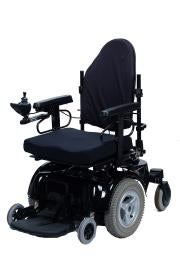On February 15, 2018, the United States House of Representatives voted in favor of adopting the ADA Education and Reform Act of 2017, H.R. 620, which, if approved by the Senate and signed into law, would amend the Americans with Disabilities Act (“ADA”). Title III of the ADA (“Title III”) requires “places of public accommodation” (nearly all businesses and facilities open to the public) to make their facilities and services accessible to individuals with disabilities, including by making structural and design modifications to the facility, as necessary. Though Title III serves a laudable purpose, a cottage industry has developed whereby serial Title III litigants and their counsel, spurred on by the potential to recover attorneys’ fees, file countless lawsuits against businesses without any pre-suit attempts to reach an amicable resolution of their alleged claims.
H.R. 620 would amend the ADA by requiring would-be plaintiffs to provide written notice to the place of public accommodation prior to filing suit that their access to the business or facility is limited by a barrier prohibited by Title III and its implementing design regulations (the Standards for Accessible Design, or ADA Accessibility Guidelines (“ADAAG”)), specifying in detail the nature of the purported barrier to access. The business would then have sixty (60) days to investigate the threatened claim and propose a plan to remove the purported barrier, and an additional 60 days thereafter to implement the remedial plan. The amendment would also create an alternative dispute resolution (ADR) mechanism, administered by the U.S. Department of Justice, whereby parties to a threatened Title III action could attempt to resolve their disputes without resorting to litigation.
Although critics of the bill claim that places of public accommodation have had 25+ years to modify their properties to comply with the ADAAG and that pre-suit exhaustion requirements would disincentivize businesses from proactively modifying their properties to comply with applicable design standards, the bill is well-received by the business community weary of overzealous lawyers and their vexatious clients. For example, one law firm in Phoenix, Arizona recently filed more than 1,700 Title III lawsuits in Maricopa County alone, many without a named individual plaintiff who claimed to be aggrieved by a purported barrier to access. The Maricopa County Superior Court consolidated hundreds of these cases to allow the Arizona Attorney General and the defendants in those many cases to challenge the filings en masse, resulting in a successful motion to dismiss. But that same firm then resumed its efforts in the federal trial court, filing hundreds of such cases in that forum. Though this particular firm’s strategy drew the ire of the federal bench, judicial sanctions against the firm, and investigation by the Arizona State Bar, it also settled hundreds of threatened and putative claims out of court, with many small businesses opting to settle even frivolous claims rather than incur costs of defense.
Steps like those taken by the Maricopa County Superior Court and Arizona District Court help but require expense and judicial resources. By contrast, adding a pre-litigation exhaustion requirement and ADR procedure to Title III would help to stem the tide of Title III filings, encourage early resolution of claims, and free the courts to address claims against recalcitrant businesses or where the parties have legitimate disagreements as to the interpretation of Title III accessibility requirements.




 i
i


